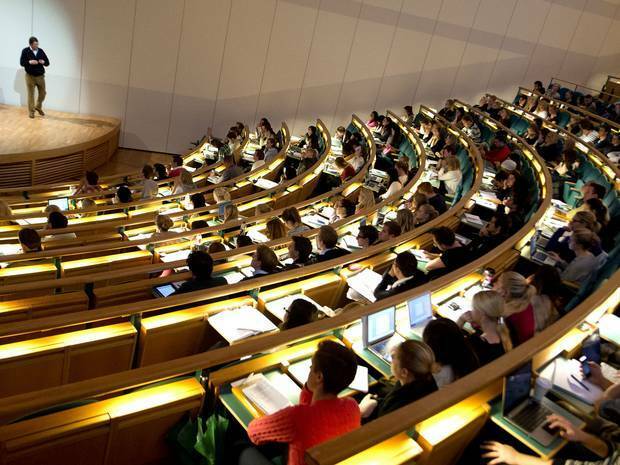We're All in Fractal Microcults
We now have an infinite number of ways to strongly disagree with someone

We know why healthcare isn’t broadcasted over the internet. It’s because you can’t fix 1,000 people’s broken leg’s by live streaming the repair of a single person’s broken leg.
We know why we don’t broadcast money. It’s because money is (kind of) a static resource. If 1,000,000 people receive the money that we’re giving to a given person then it disrupts the currency system.
And we know why we don’t broadcast food and shelter online. It’s because the laws of thermodynamics dictate that physical matter, such as food and houses, cannot be replicated from one origin to millions of people that need it using the internet.
That’s understandable. There are physical limitations of what the internet can do. But this reasoning doesn’t work for education.
When a professor at some big-name university gets in front of a class, they’re performing for the most privileged people in the world. The best genes. The best families. The best luck. The best everything.
And that’s fine.
They did the work in high school. Their families paid their way. So let them sit in the class, be there in person, get the networking opportunities, get the credits, and get the prestigious degree. To what ever degree it’s possible to deserve something, they deserve it.
But why aren’t we live streaming the sessions and beaming them for free to the rest of the world? Why aren’t we sending this incredible knowledge to the rest of the world that needs it most? They can’t get the credits, but they can get the knowledge.
What exactly do the most fortunate people in the world lose by having their future employees and servants benefit—ever so slightly—from their extraordinary privilege?
Very little. They get a slight reduction in the smugness that comes with knowing that they’re the only people in the world who are good enough to watch that lecture.
It’s a bit sickening.
Get a weekly breakdown of what's happening in security and tech—and why it matters.
And that’s just the students. Then there are the universities themselves. What do Harvard and Stanford lose? And the professors?
Again, not much. They’re getting the fees either way. Will the parents of potential students stop paying because someone else might see the same lecture as their princes and princesses? Some may complain, but they won’t stop sending their kids.
The whole thing is revolting if you think about it for 20 seconds.
We have the internet. We have video cameras that cost virtually nothing. And we have these brilliant professors with hundreds of thousands of dollars of education in their brains.
And who do they shed that light on? A few people who are pretty much destined through fortuitous genetics and a stellar selection of parents be in the top 1% of earners on the planet earth.
7 billion people in the world. Many of them completely illiterate. Many unable to find food or shelter. Most with little to no access to education.
And we place our best professors at the top of golden mountains, with guards at the gates, and protect their information inside—available only to those who need it the least.
If there were a galactic courtroom, this would be a crime.
Shame on us.
iTunes University and similar free university courses are an excellent step, but they’re bandages to a wound that we continue to open.